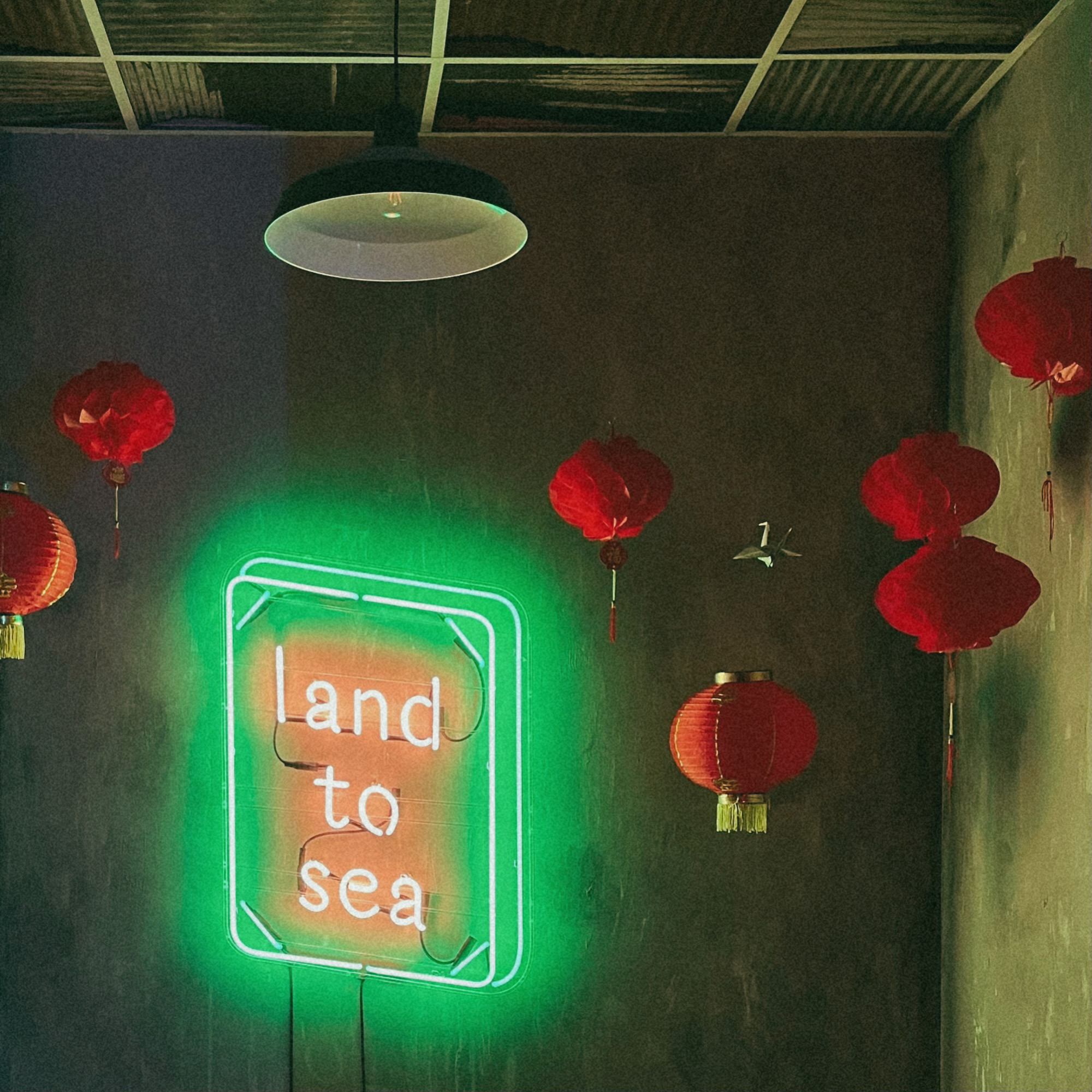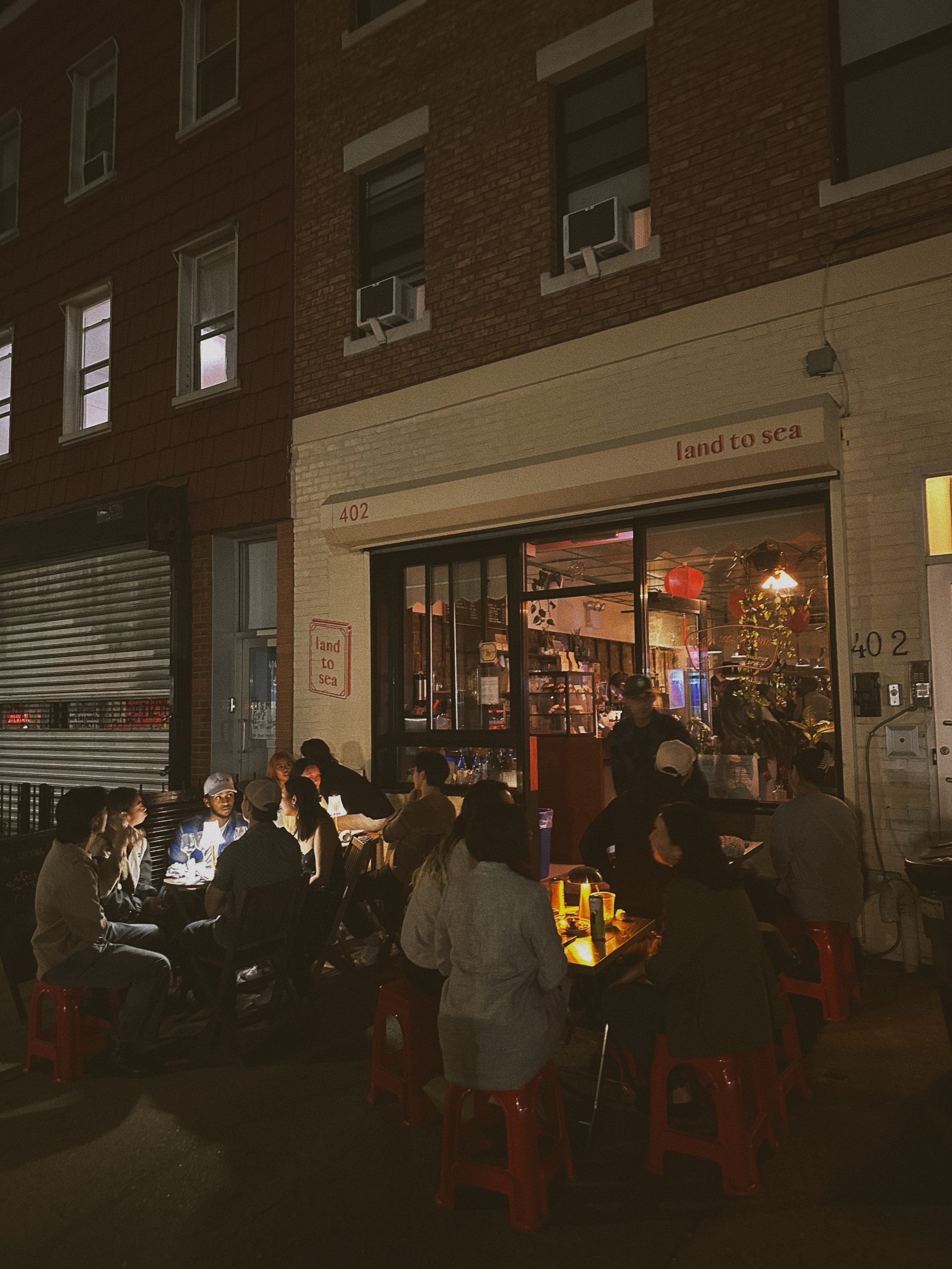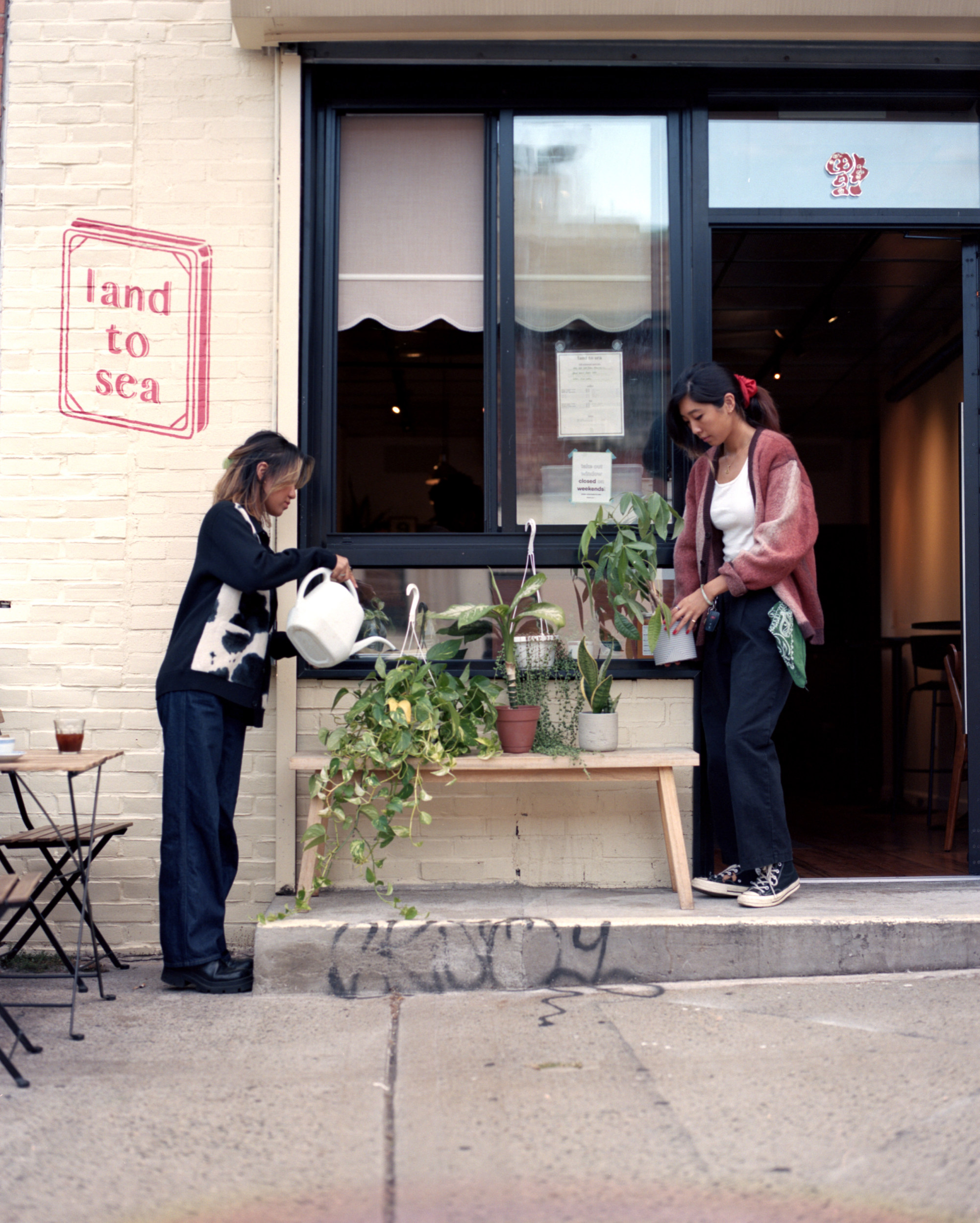“The allure of Land to Sea is that we’re welcoming you into an extension of our home,” says Shum. “We’ve made this place very personal, but that’s on purpose.”
Shum and Zhou first came up with the idea for their coffee shop in late 2020, after they had both spent several years working in the fashion industry.
The two friends, who met while studying at the Fashion Institute of Technology in New York, were starting to establish themselves in the corporate world – Shum at Balenciaga in New York, Zhou at Converse in Boston in Massachusetts – before they realised they needed to switch fields entirely.

Zhou’s parents ran multiple restaurants, including in Texas and Nebraska – she was born in the former and grew up in the latter – while Shum’s grandfather opened a Chinese-Latino restaurant called New Apolo in Brooklyn 30 years ago. Today, it is run by her brother.
“I feel like we grew up in hospitality,” says Shum. “We had talked a lot, and connected a lot in our friendship, about wanting to do something on our own that connected to our heritage and to the community that we were part of in New York.”
So Shum and Zhou got to work, eventually contacting a friend who had grown up in Hong Kong, Jeremy Son, to help design the space.

“Growing up, my dinner time was the whole family – my grandma, grandpa, uncles, cousins, all of us – circled around a coffee table,” she recalls. “We would lay newspaper out, and then we would eat dinner on the coffee table.”
The circular tables were also intentional, Zhou adds. “It’s such a prominent shape in Chinese [culture] for having meals together, sitting down together.”
“People get so shocked when they see that,” Zhou says of the latter. “They’re like, ‘Oh, it’s deconstructed.’ It’s jarring for them, but for me, I’ve seen that my whole life.”
Meanwhile, the back room, with its moody ambience and neon lights, is inspired by Hong Kong’s Temple Street Night Market and Chinatown night markets around the world.
Here, guests will find a range of knick-knacks or “refined clutter” – which, Shum notes, is “a trademark of immigrant households” – including a photo of Zhou’s parents in front of their first restaurant taken before she was born. (She quips: “Can you believe fish soup was US$2.50 back then?”)
The bathroom also notably features a wallpaper of Chinese newspapers, and has become an established selfie spot for Land to Sea visitors.

“Our coffee shop is definitely all about Chinese and Hong Kong culture in everything we do,” says Zhou. “A big part of our identity here is making our family proud, representing our culture […] There was a need to create a space for us to connect, talk more about our culture, learn more about each other and just celebrate it, especially in the coffee scene.
That is why the coffee shop also acts as a community space, with Land to Sea playing host to events such as food pop-ups, jazz performances, markets and mahjong nights, which have become a staple on the cafe’s event calendar.
“We want to keep the space fluid and bring in and represent people from all kinds of backgrounds and hold all types of workshops, where people can really connect. It’s not a typical coffee shop at all,” says Zhou.

While Land to Sea has been welcomed with open arms since it opened, in October 2021 – though many tourists also make it a point to visit the space – it was not all smooth sailing for Zhou and Shum.
“Especially being young women in New York building a business – that can be very mentally challenging,” says Zhou. “It takes a lot of guts to be able to go against the grain of what your family wants, what society essentially thinks is the right way to live.”
Indeed, her parents questioned her decision to return to the hospitality industry. “In the beginning, they were both like, ‘Don’t quit your full-time jobs for this,’ because for them working in this industry was survival,” she says.
“They think working a full-time job is the American dream – having that safety net, the benefits, all of that.”

But for Zhou and Shum, it was precisely seeing their respective parents work in hospitality, and their grit and determination over the years, that led the two to become the people and entrepreneurs they are today.
“Growing up in that environment, we worked at a very young age,” Zhou says, recalling how she would help crack eggs and wash vegetables at the family restaurant.
“Seeing your family work and earn their living first-hand, that’s definitely a reason why Emily and I have such strong work ethics. We’re very ambitious and able to be entrepreneurs, because we witnessed that.”
Shum agrees, recalling: “There would be days that I didn’t see my dad until 3am. He’d come home, I’d see him for three minutes, and then the next day, before I left to school, he was already out the door.
“I think that has really shaped me and my identity growing up – the feeling of you gotta go, you got to do it.
“I kind of yearn for that chaos, you know?” she adds with a laugh.

Thankfully, their leap of faith has been worth it.
“Returning to hospitality has felt very natural, especially since it’s something that we both know and are so familiar with,” says Shum. “When I was growing up, I tried so hard to depart from my roots, my heritage.
“My parents, now, coming here, they’re like, ‘Wow, you’re really embracing what it means to be not only Chinese, but Chinese-American, and making it your own.’”

